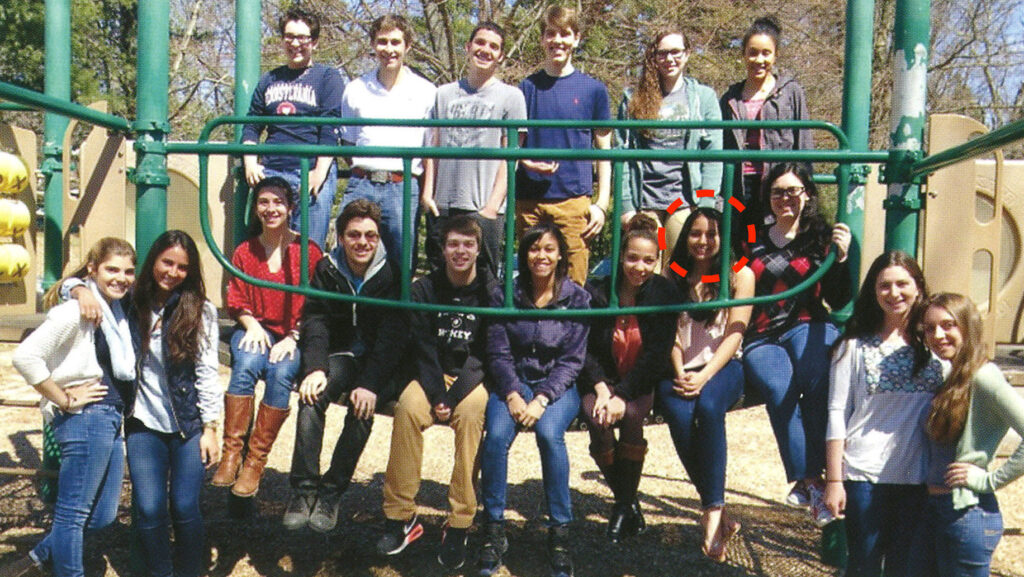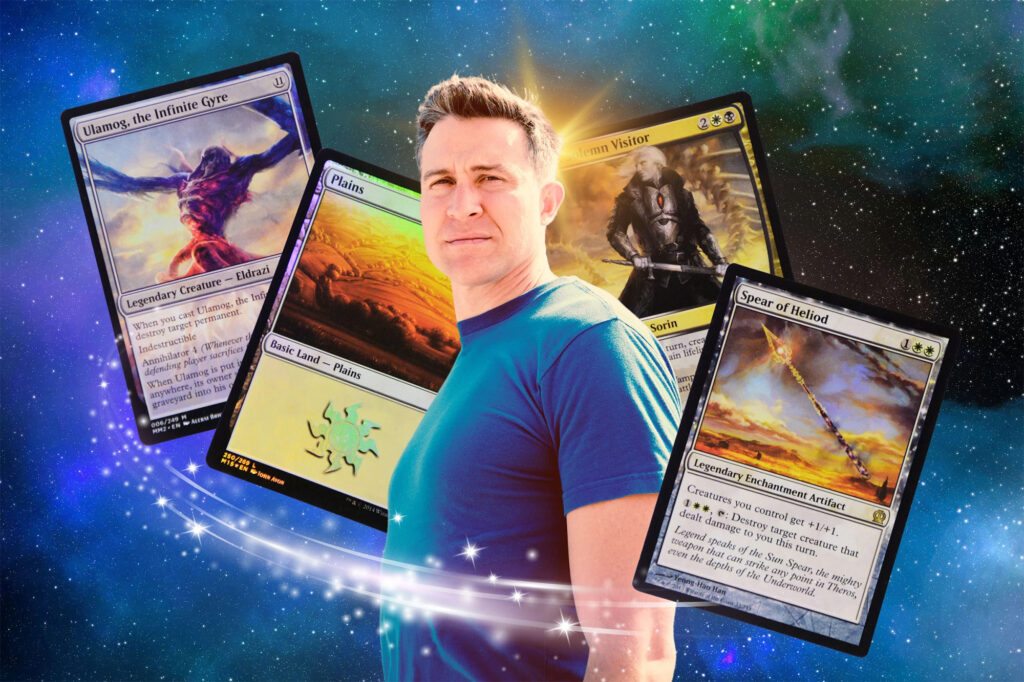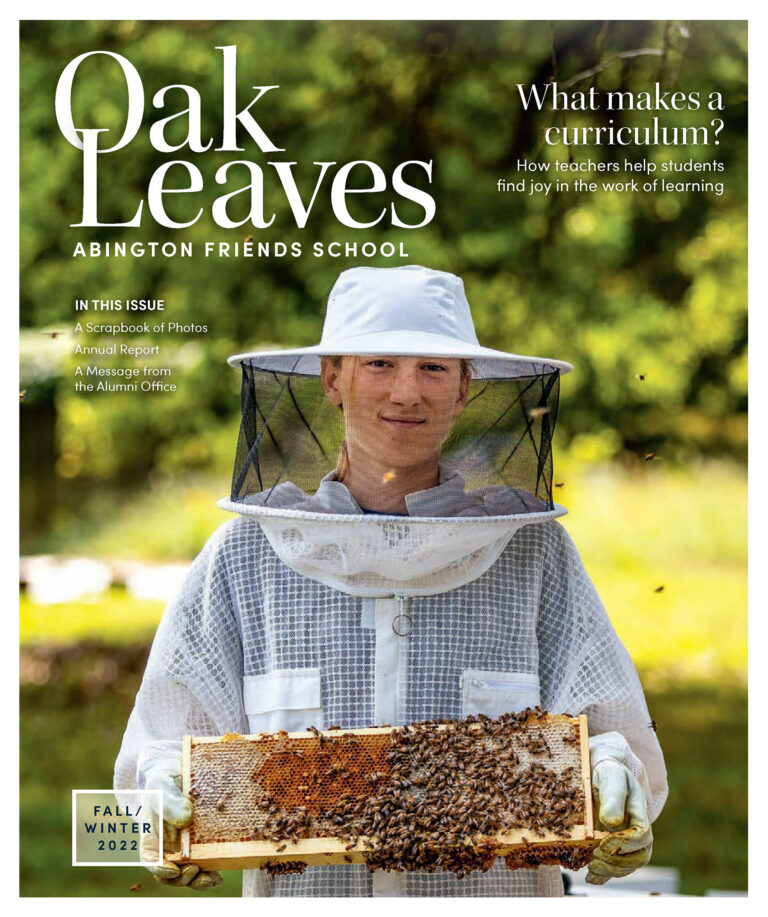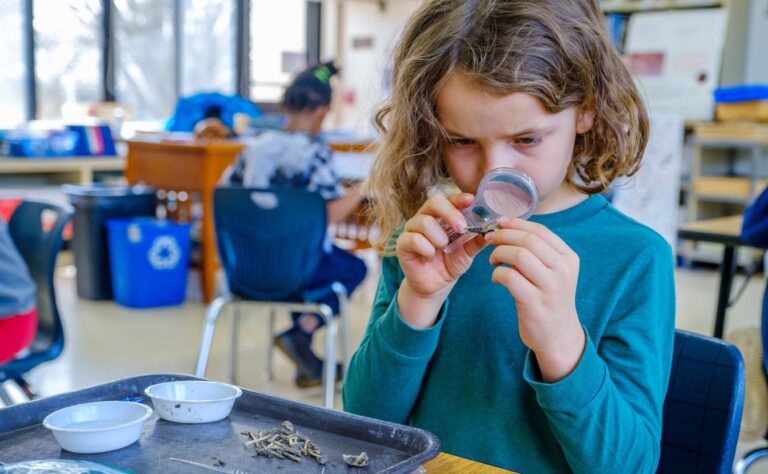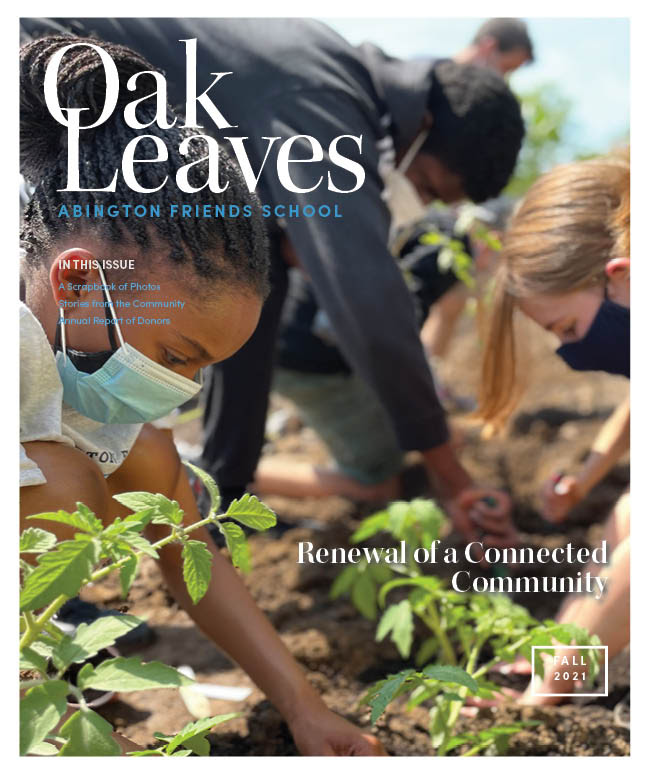Going Your Own Way: An Interview with TIME Magazine Journalist Mini Racker ’14
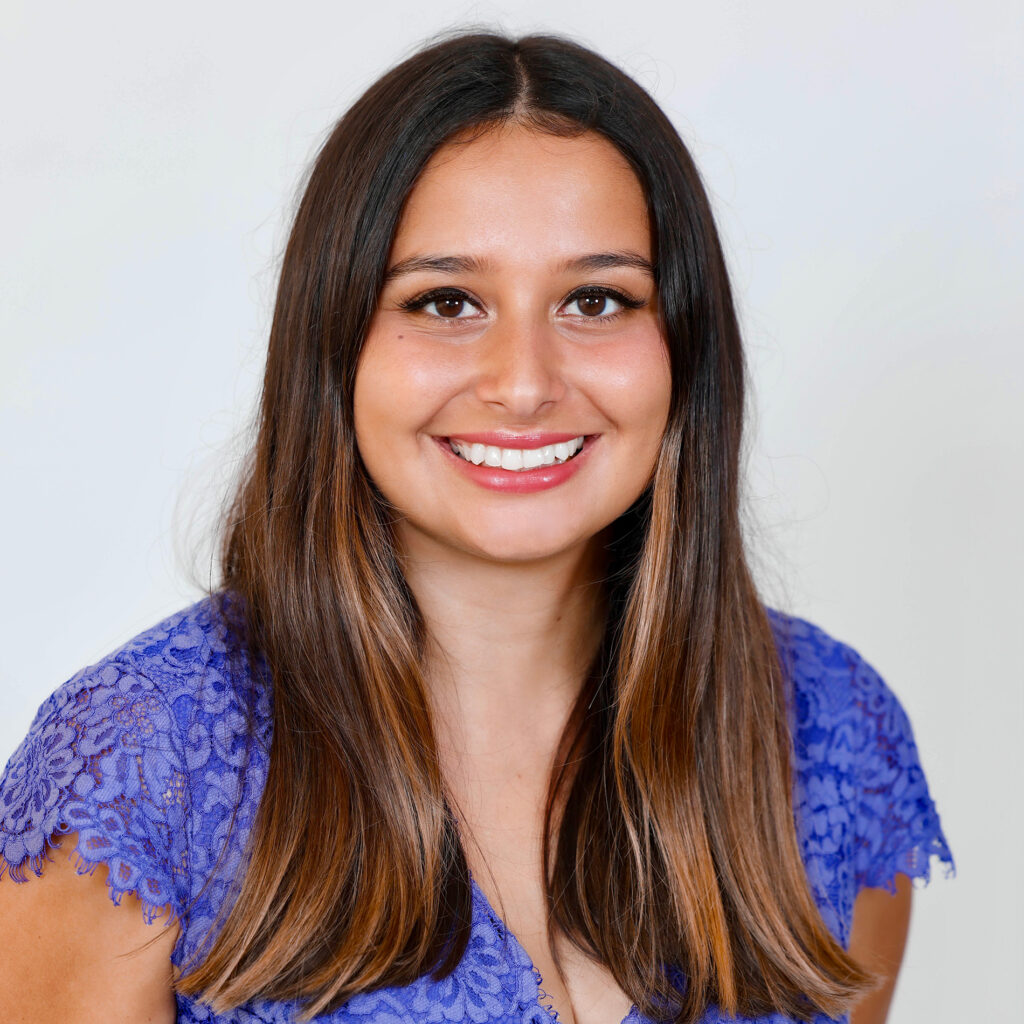
Reporting live from Jenkintown, PA, Oak Leaves has landed an exclusive interview with TIME magazine journalist and Paul Miller Reporting Fellow Mini Racker, an intrepid reporter and AFS lifer. Mini reflects that her time at AFS helped give her the skills—and the confidence—to live her values no matter what. Whether it was pivoting mid-college to a totally different career or learning to trust her reporting instincts and go against the grain to find insights no one else is looking for, Mini knows what it means to carve your own path.
So bear with me for a moment. You’re currently in DC reporting for TIME, but you studied Mechanical Engineering in school. Did you always want to be a journalist?
Actually, when I graduated AFS, I was excited to study engineering at Stanford. I’d always loved making things and building things. At the same time, I loved to write, so I envisioned this set-up for myself where I would be an engineer for my career, and then maybe write on the side.
But while my friends would get these great engineering jobs during the summer, I was applying for other programs. I spent a quarter off-campus in a Stanford program in Hawaii where I got to talk to a really wide variety of people while doing environmental research, more in line with politics and human-oriented work. I started talking to people I trusted about how to have a sustainable career as a writer, and the answer I kept getting was journalism. It was something I hadn’t really done a lot of—I hadn’t even written for the school paper!—but I said to myself, If this is something I’m really interested in, then I should probably start now.
Then, during an internship I had in Washington, DC, I got an email from a political media start-up saying: “We’re hiring a reporter!” So I applied, and—I don’t know, so much of it is luck, because they hired me. I talked to people on the street about what they thought about politics. At that point, I was very deep in my engineering degree, and I wanted to finish it. But I also knew I was taking my first step into reporting.
Fast forward and now you’re with TIME Magazine, and you just received the Paul Miller Fellowship, which is pretty amazing for someone who first started pursuing political journalism five years ago.
Definitely, I didn’t know I’d get it when I applied for that Fellowship! For me, the cool thing about it is the connections it brings you. It’s not just a gold sticker for your work: It provides access to a community of DC reporters. And the National Press Foundation is saying, We believe in you, and we want to set you up with a community to learn from each other. I’ve won other things in my life, it’s nice to win things, but for this, to get to join that group and have some built-in structure, it’s great.
It’s a precarious industry, and in the future I might need help getting a job. It might not seem like it, but even in reporting, it’s still really important to foster friendship and community—which is also a very AFS value.
You’ve been doing some incredible reporting out of the Senate. You were on the ground in Georgia for the 2022 elections; you’ve been covering PA’s new senator John Fetterman—out of all of the work that you’ve been doing, what is a piece that you are really proud of?
At the beginning of February, I published exclusive details on the assistive technology Senator John Fetterman was using in the Senate. That was really exciting because it was something only we had, and every other outlet who wants to use that information is citing us, which is really cool, to have that kind of reach. And especially for me, going back to the difference between DC culture and AFS culture, I often feel like my approach to work, to stories, to life is pretty different from what the norm is in D.C. political reporting.
That was a story where I felt I could really lean into my interest—even that hometown thing, being from Pennsylvania—wanting to do this story about people with different health challenges and different abilities, and do it in a way that was successful and got a lot of attention. Even now, there are things I’d change in the writing, and a year from now I hope my writing is even better. But it’s a story that I’m really proud of.
You mentioned that DC journalism can be a competitive culture, one that might feel almost like the opposite of AFS. When you think back to your time at AFS, can you draw a throughline between your experience here and where you are now?
It’s hard to describe the weight of AFS for me in my life and how much it has shaped who I am. For me, there’s this pervasive feeling in DC reporting that you have to be good at whatever everyone else is doing to meet the standard. But what really defined my AFS experience was the ability to do school in my own way—in a way that would allow me to pursue my passions even if they were nontraditional or broke the rules.
I remember being in Matt Slagter’s Latin class—(and Matt was such an angel to my class, we were a bit mischievous)—and I would ask, “Can I lie on the floor for a few minutes to think through this translation?” Or it would be raining, and I would say, “Can I run out in the rain for 5 minutes?” I just needed to clear my mind. And he would let me do it! Just being able to have little breaks or manage my life in a way that was unusual taught me that sometimes the unmarked path leads to the most interesting stories—I take the test, do the homework, and learn, but in my own way.
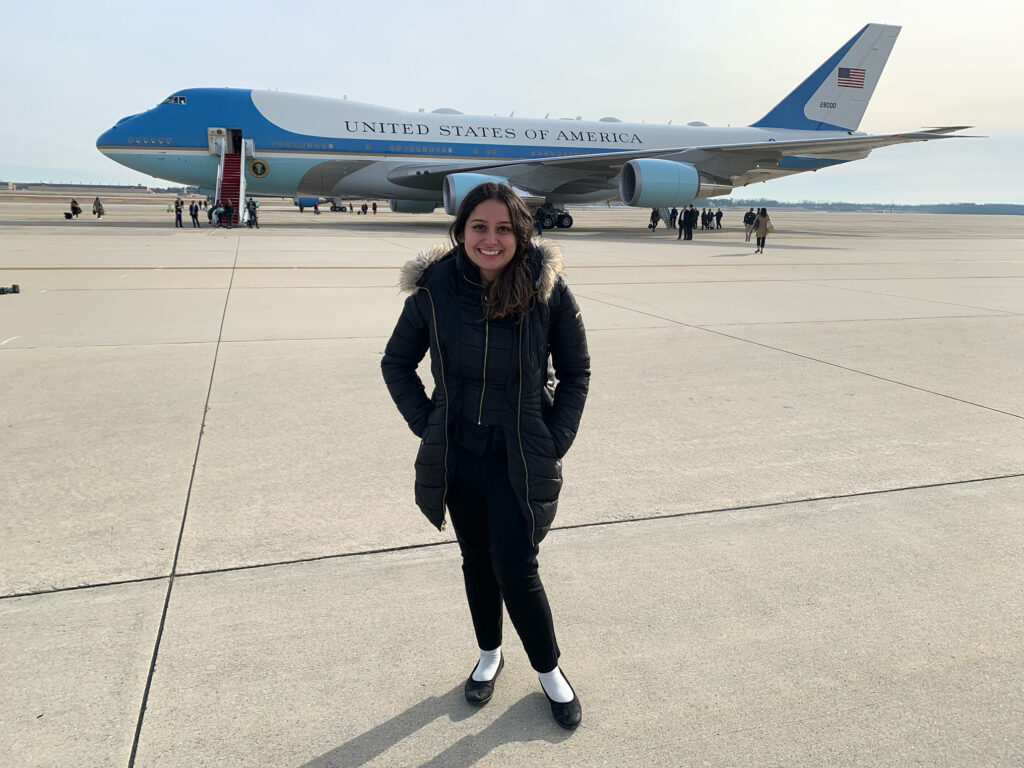
That has stayed with me. The Fetterman story was not something that people were focusing on at the time when I reported on it—this was a bit before some of his more recent health concerns. But I thought, “Hey, I have this question that no one’s really following, but I think it would be good. It’s kind of an nontraditional story. Let me give that a go.”
If you could do it all again, would you make the same choices?
I go back and forth on that a lot. I’m proud of my engineering degree—It was really, really difficult, and I got to make some fun things in those years. I don’t know if my degree is directly applicable to my job, but let me tell you—people see you a little bit differently. I can’t tell you the number of people who have told me some variation of, “Wow, you’re a journalist who can do math!” And it absolutely helps you think differently, which is something that is so important in my role.
If I had pursued another major, would I have enjoyed that more? Maybe. But I was passionate about engineering at the time. I wasn’t about planning five years ahead of time—that’s not me. I like to embrace the thing that I am currently excited about and do it to the fullest extent possible. That has always been a principle that guided me, and it hasn’t really steered me wrong.
What advice would you give to your high school self?
The advice I would give is “Worry less.” Do the best you can. I’ve always been good at being kind of chill and not planning like 10 years ahead where I have to follow every step. I think growing up these days, there’s this expectation that you always have to know exactly what you want to do because things are competitive, the cost of living is high, and the world can seem very scary. But for me, I try to do the best possible thing I can do in what I’m focusing on right now, try to leave as many opportunities in front of me as open as possible, but not force myself to check off all these boxes to get to a certain career point.
